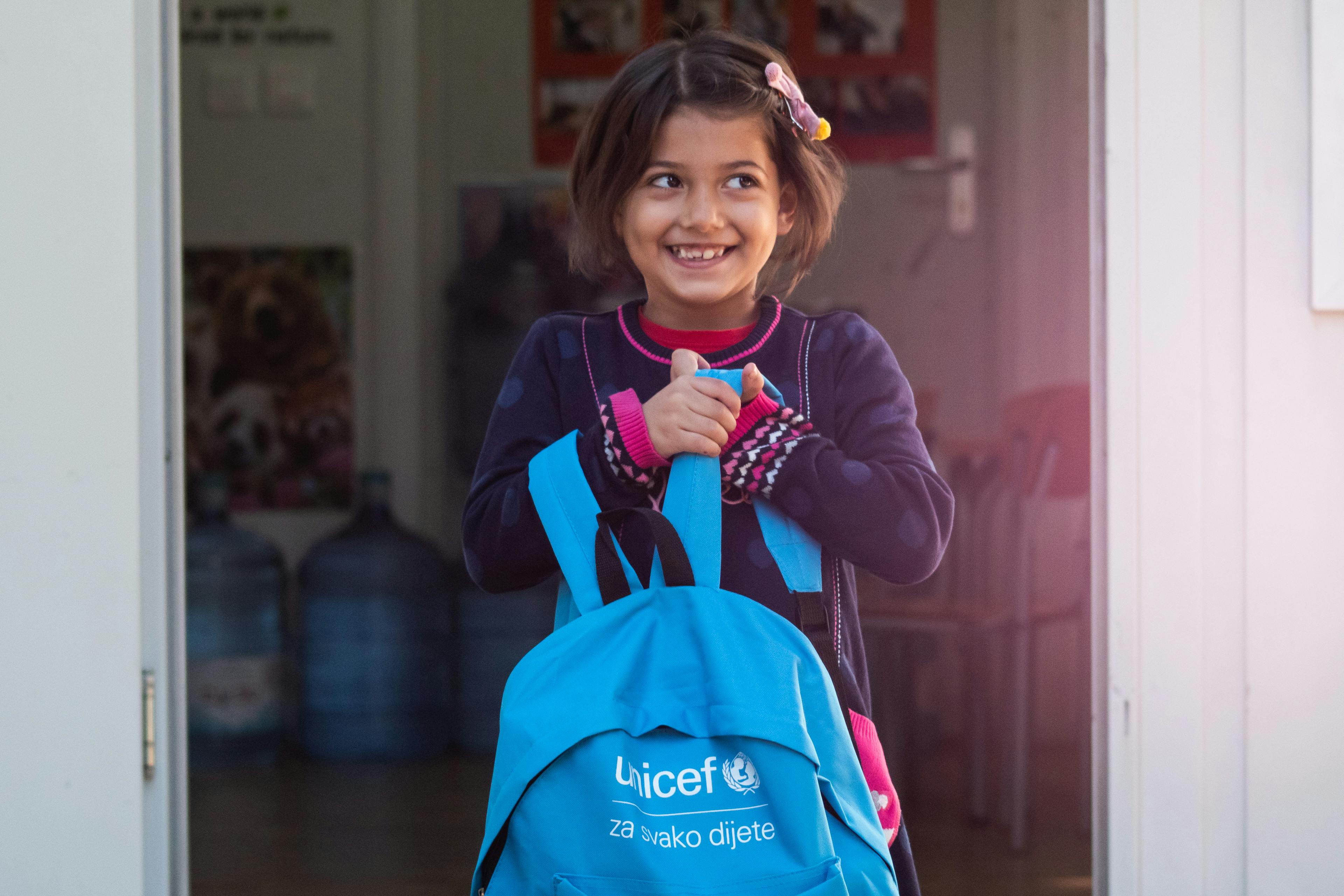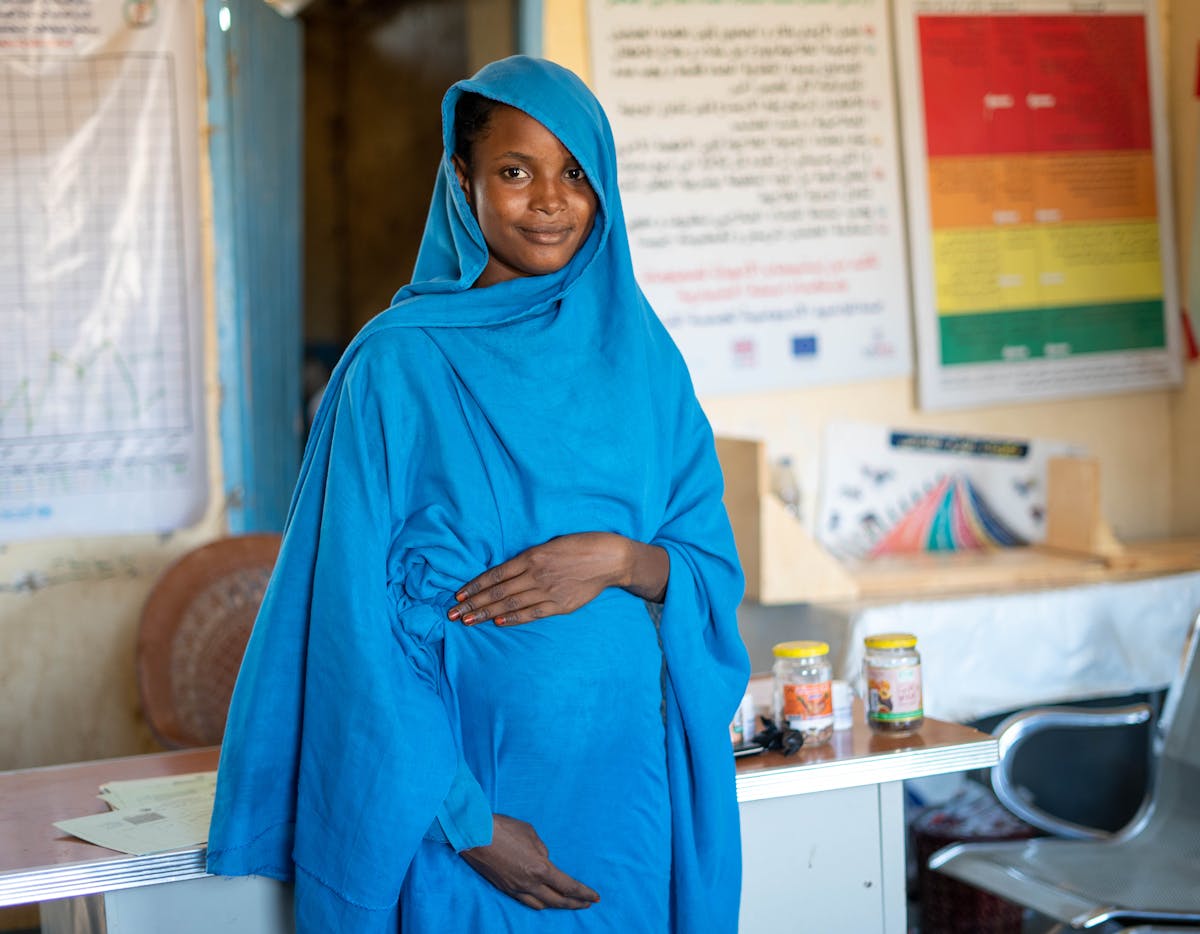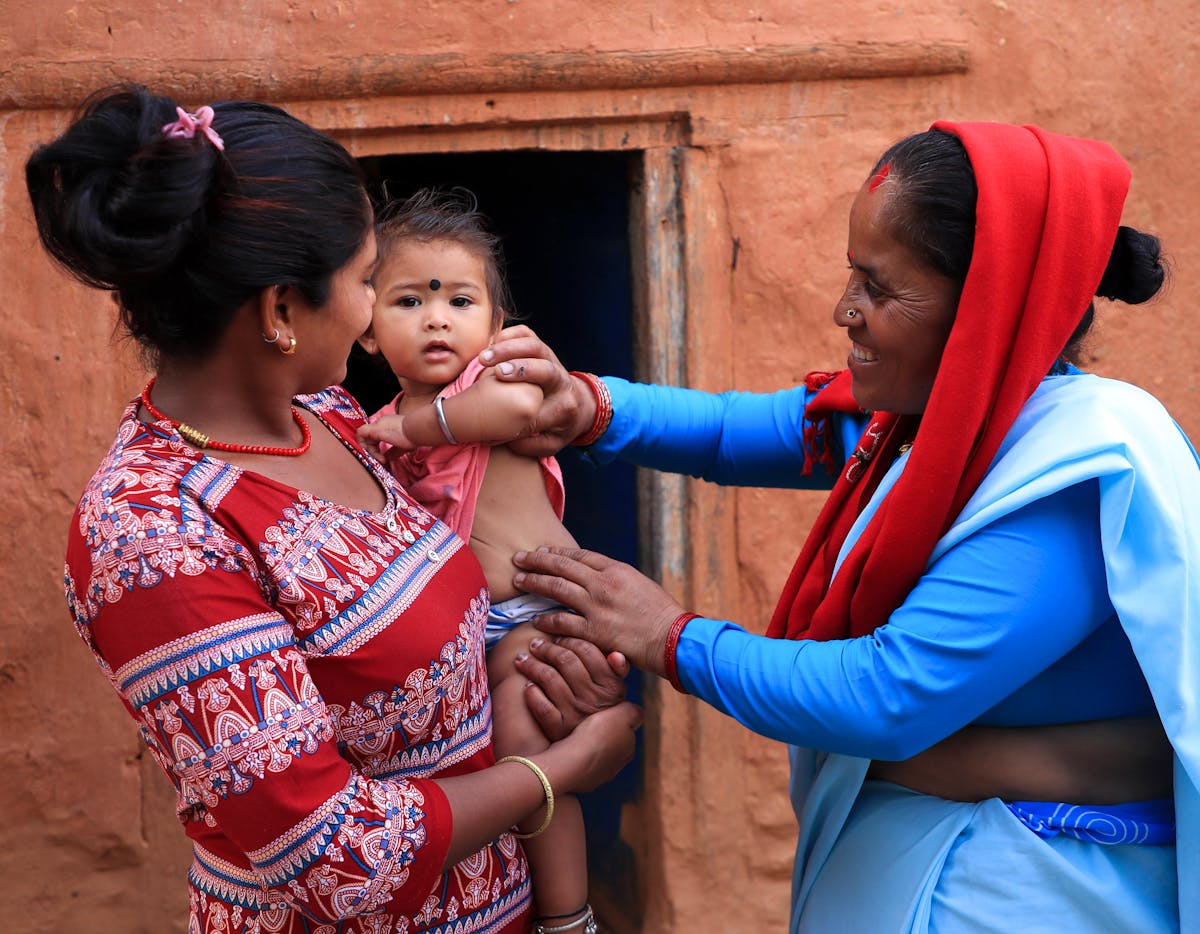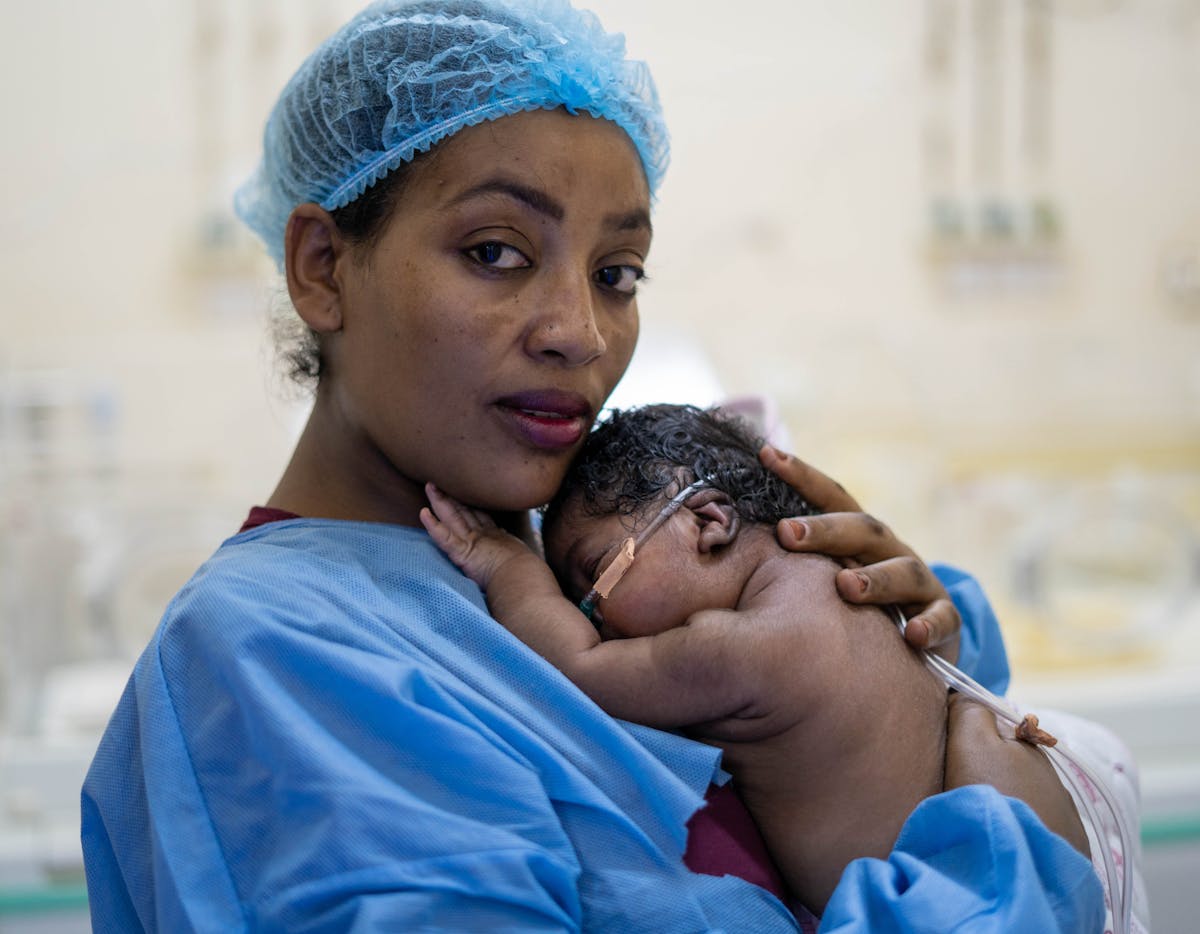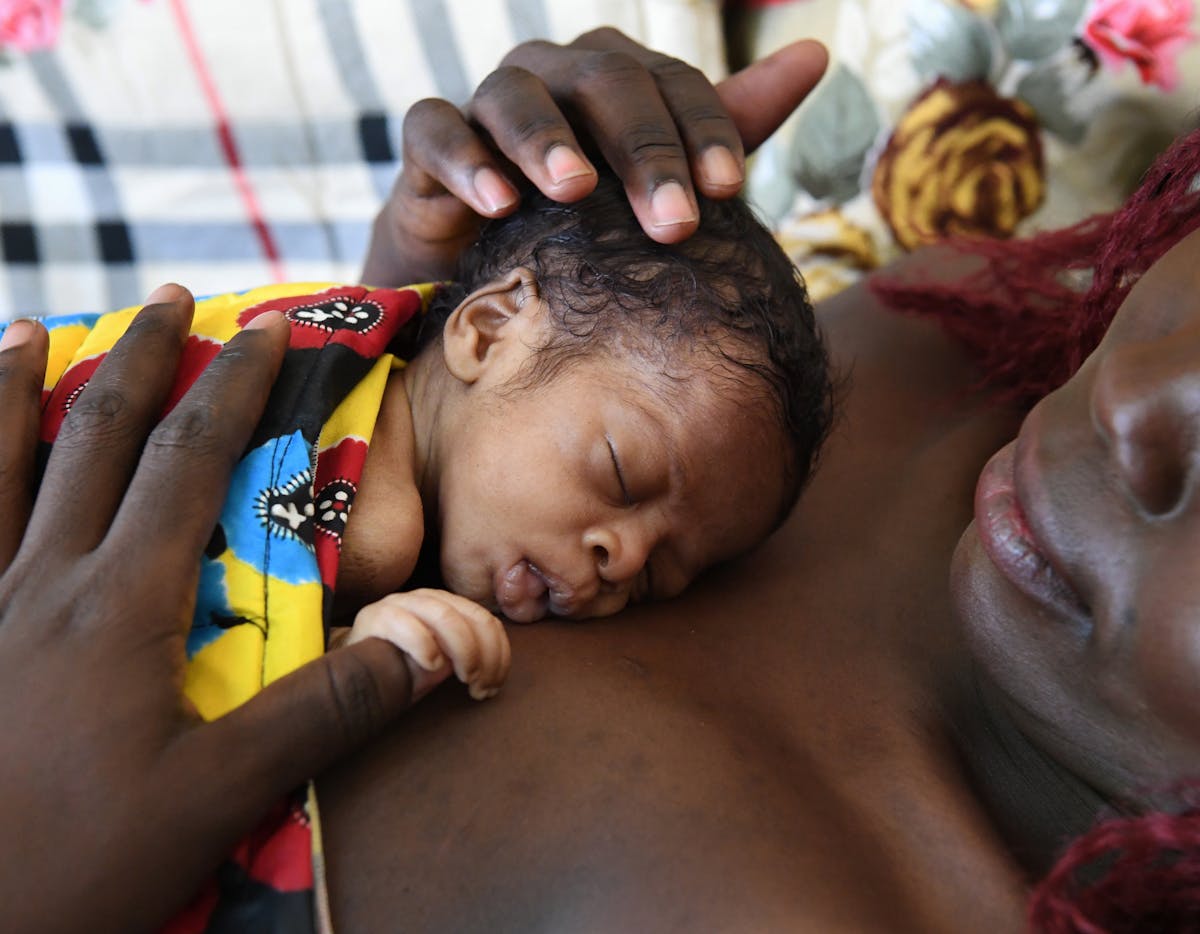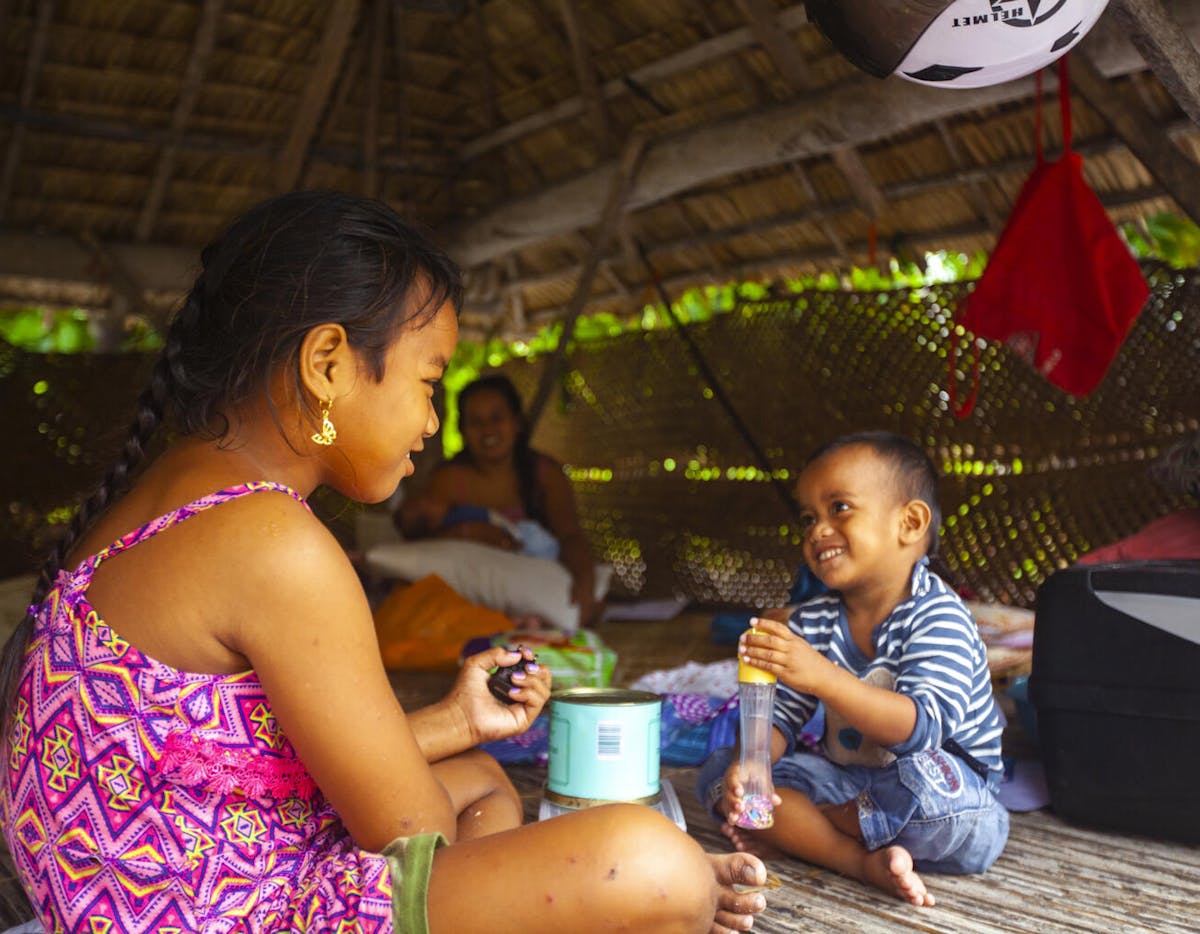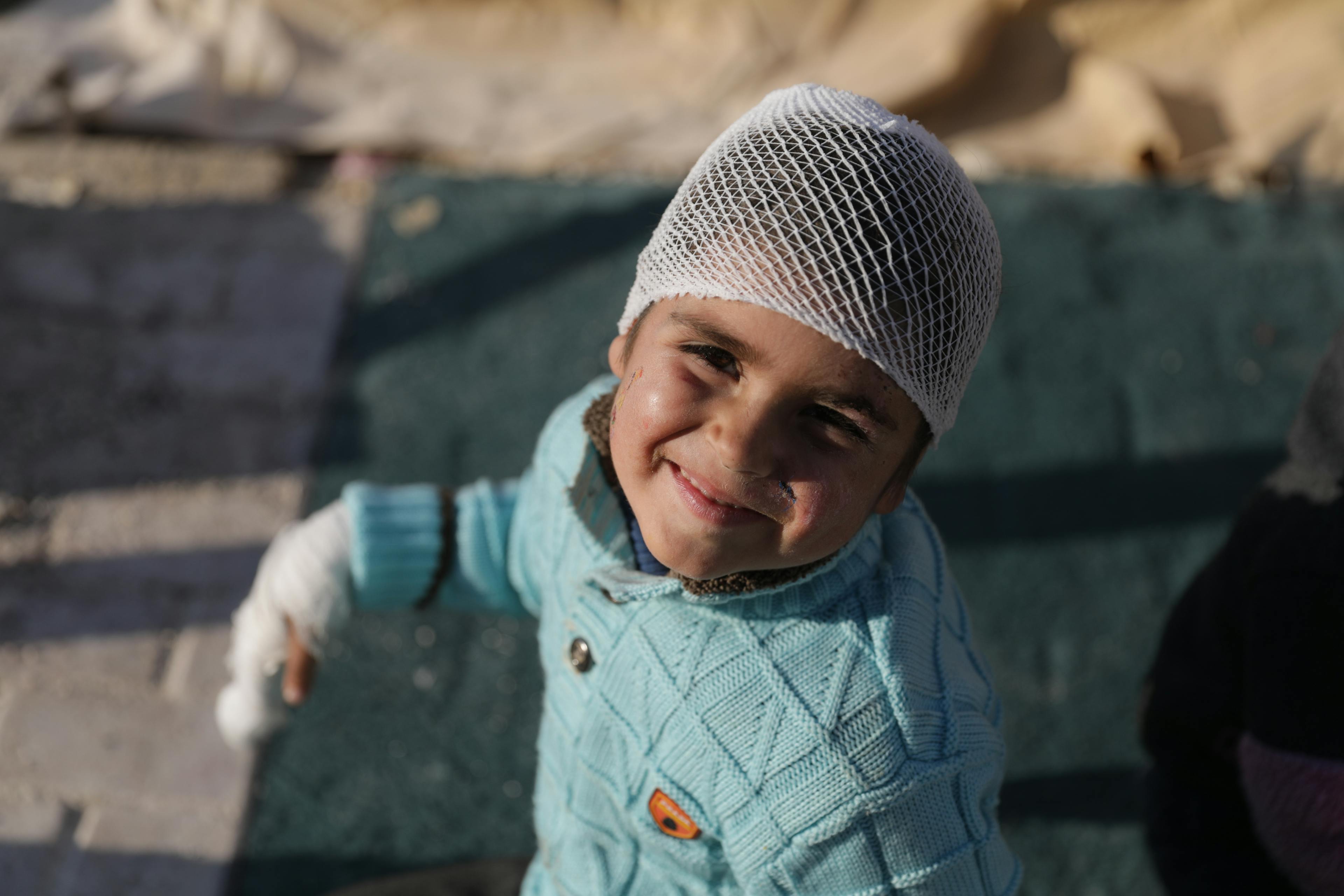
UN0803480
Health & Medicine
Home
Our Work
Health & Medicine
A healthy body, mind, & environment – for all kids, everywhere.
A child born today has a greater chance of making it to their fifth birthday than ever before, while fewer people are losing their lives during pregnancy and childbirth!
We're proud to be a part of this incredible progress in health – though it wouldn't be possible without the ongoing support of our donors and partners around the world. Together, we're making sure quality health care is community-centred, affordable and accessible – to give all kids the best start in life, and to make sure they grow up happy and healthy!
If we change the beginning of their story, we can change their whole story.
34.7
million
kids, parents, & caregivers accessed mental health and psychosocial support in 2023.
67
countries
ran disability inclusive social protection programmes with UNICEF's support in 2023.
76
%
birth registration reached in 2023, resulting in more kids accessing essential services.
How your donations help
From uncomplicated cooking classes to strengthening health systems and services, here's what it looks like in practice to prioritise the early moments in life that will continue to help reduce the lives lost through maternal and newborn complications.
Building community!
UNICEF's expert health workers spend their days in the field getting to know the people our life-saving programmes are designed to help. Their relationships give insight into a community's culture, customs, concerns and needs which is how we provide effective, and tailored care - especially when we need to respond quickly to immediate health risks and emergencies.
When crisis strikes, the presence of familiar health workers provide stability and reassurance to overwhelmed and vulnerable kids and families. This trust makes it easier for community members to accept health interventions and seek timely care, ultimately saving lives!
A measles-free future for Vanuatu is becoming more of a reality every day thanks to dedicated health workers like Dominic. He's spent years journeying up and down the rugged islands of Vanuatu to reach and build trust in vaccines - protecting the lives of these remote communities.

UN0259826


Follow Dominic as he traverses mountains to protect kids from communities in Vanuatu!
A healthy body, mind, & environment...
... for the wellbeing of kids AND their caregivers. Why both? Because the physical and mental health of a caregiver can greatly affect their ability to care for a child.
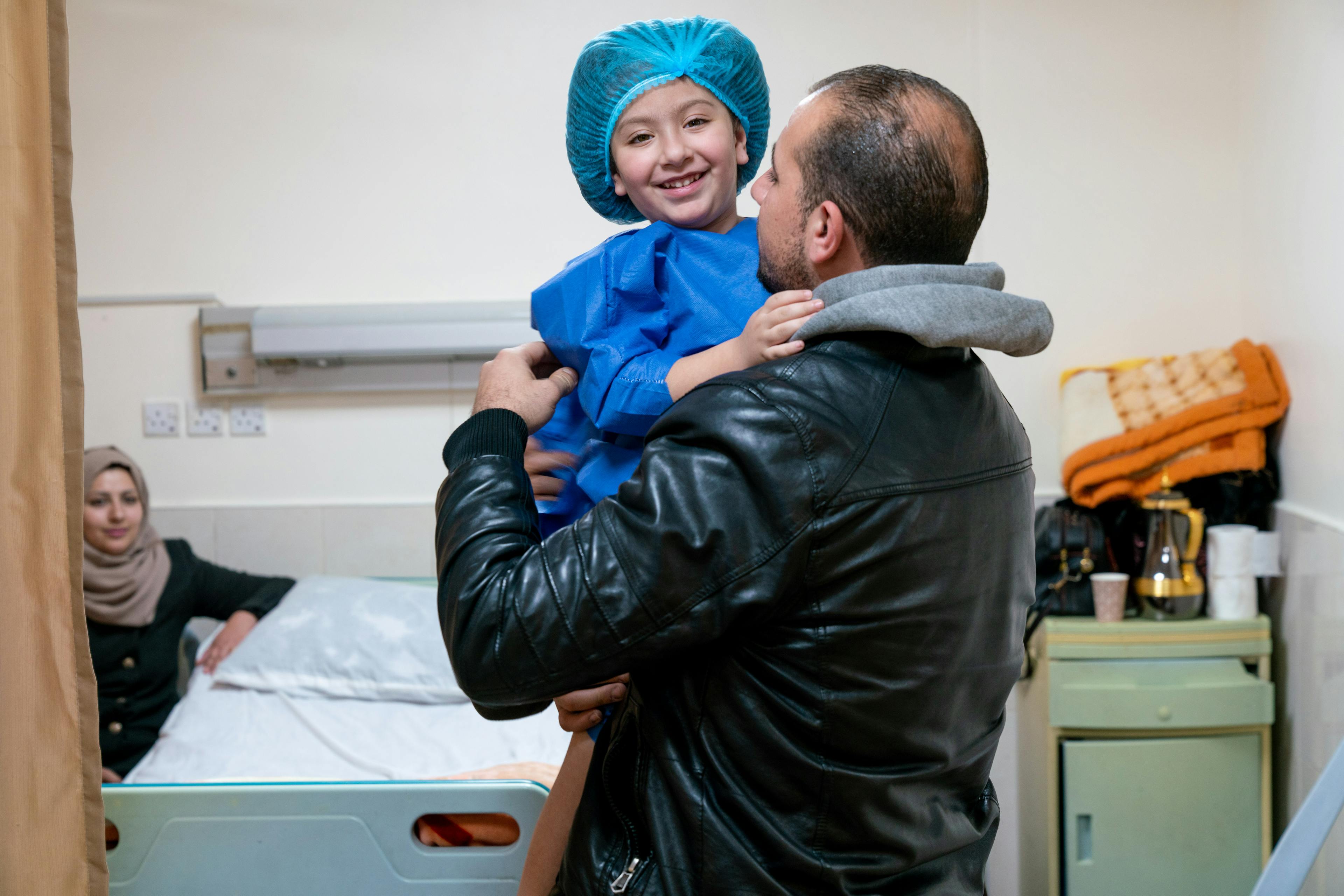
UN0276746
Body
The foundations for lifelong health and well-being are built throughout pregnancy and the first 3 years after birth when the brain develops fastest. Though in later years, kids still need strong care and support to nurture their ongoing cognitive, social, emotional and physical growth.
Our wide range of donor funded programmes support maternal health, early childhood development, and accessible health services that benefit and influence kids for life, and carry into the next generation. These health interventions stop children from falling between the cracks and getting left behind - especially those with disabilities and impairments.
Brave 4-year-old Julie underwent life-changing surgery so she could walk thanks to UNICEF donors. Our surgery programme in Jordan covers all medical services - including the operation, in-patient care, longer stays when needed, medicine, and follow up visits for children whose parents could otherwise not afford it.
Julie's father Ali is relieved and overjoyed at her lift in confidence and new lease on life. Poverty and disability are closely intertwined, and kids with disabilities are over represented in the poorest communities. We work to make sure nothing holds kids back in life, no matter their circumstances!
Mind
We put just as much weight into the mental wellbeing of kids and caregivers as their physical health - to give them the best quality of life and strengthen their resilience in the face of crisis and adversity.
These two friends are taking part in psychosocial and recreational sessions at our child-friendly-spaces that are giving back hope after the Türkiye-Syria quakes. Led by trained psychologists, these spaces provide a safe and stable space for kids to work through trauma, heal, and rediscover what is means to feel normal again. Just as importantly, it's a safe place to play and make friends. These spaces are just one of the ways UNICEF donors help us reach millions of kids around the world with life-changing mental health care.
Our programmes are for parents and caregivers too. Not just for the well-being of their kids, but for their own too!

UN0793618
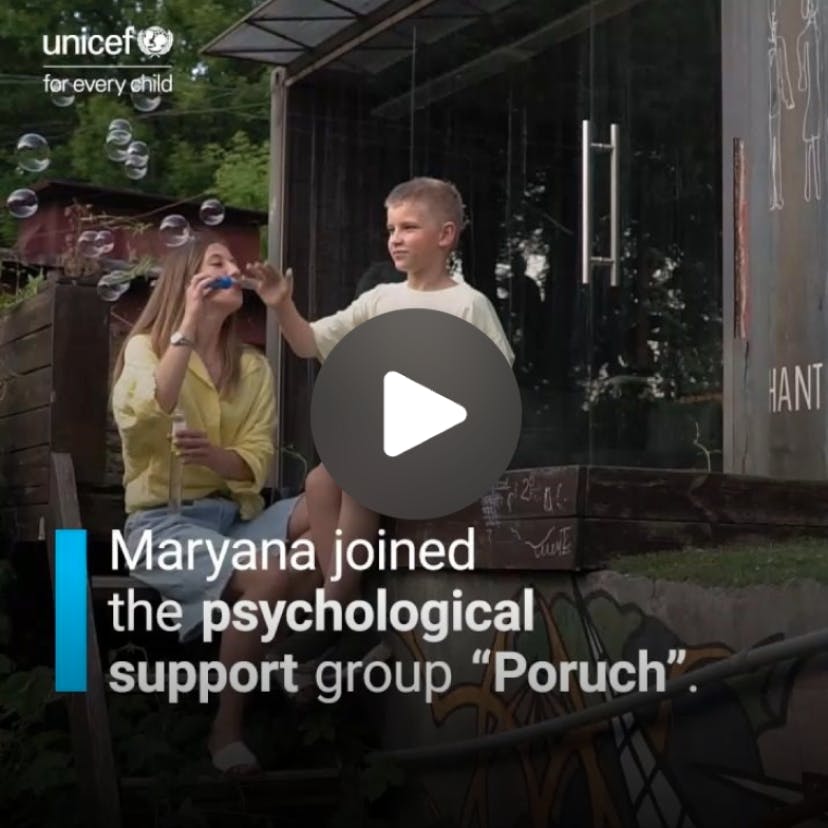
UN0665063
Maryana is one of countless Ukrainian parents confronted with daily restless thoughts since the war began. Between fleeing their home, jumping between temporary housing and the weight of an uncertain future - she and her 8-year-old son finally found peace at one our peer support groups.
Trained psychologists from UNICEF's PORUCH project bring together, online and in person, those affected by the war to offer mental health support and create community.
Maryana now has techniques to help deal with stress as well as a network of people with a shared experience. "I realised I’m not alone with my pain. And I am grateful for that ... I was looking for a safe place and I found it in the project.”
Environment
We're dedicated to breaking the barriers that tie a healthy life with where you're born or the financial circumstances you're born into. To help this vision come to life our health programmes address and reduce the climate and environmental threats to young bodies and minds by:
- Training health care staff to understand the impact of worsening environmental conditions on kids.
- Investing in sustainable, resilient and quality health care facilities to stand up against climate change, disasters, conflict and outbreak.
- Advocating for policies that protect children’s health from environmental risks and climate change.
- Establishing early warning systems that detect changes in environmental health and allow us to respond rapidly.
- Raising awareness while providing advice and support to address environmental and climate health risks to children’s health, especially for caregivers.
Only in healthy environments do children have the chance to become healthy adults, free to meet the challenges of the future!
Making the impossible possible, together!
We work in the world's toughest to reach places to make sure lifesaving health programmes are accessible to all kids - no matter the population, number of languages, or obstacles created by terrain, conflict and disaster.
One of the most impactful ways we help guarantee no child misses out is to bring together and mobilise the communities we're trying to reach!
Well-trained community members, young and old, are taking action to reach the unreached in Nigeria and look out for their collective futures. Going door-to-door, speaking the native language, and knowing the needs and motivations of their community help lower barriers so they can encourage members to engage available health services, adopt good hygiene practices and take part in routine immunisations. Vaccines saves lives but vaccination can't happen unless the population is informed, motivated and mobilised!
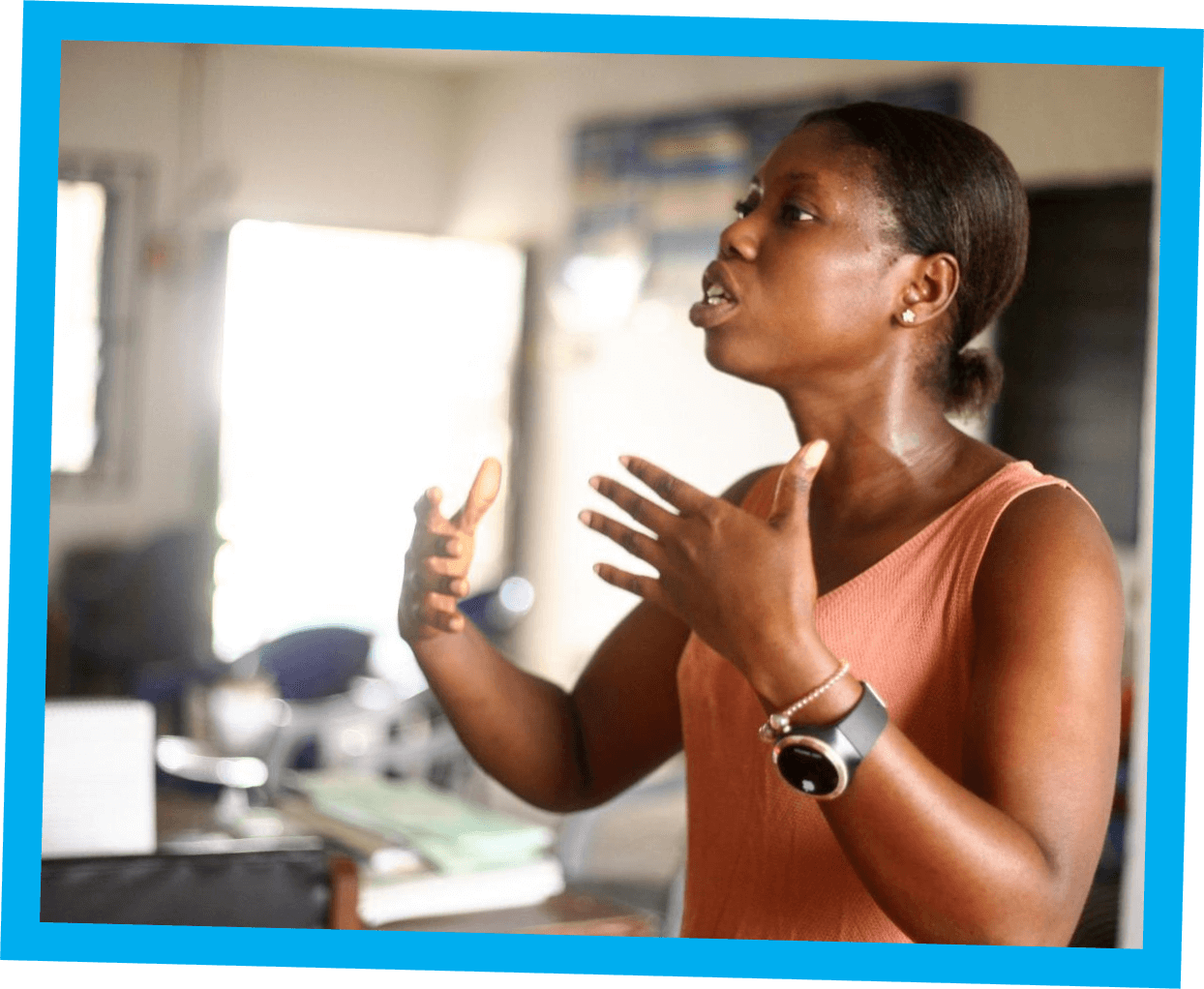
Glory, one of the local youth volunteers, works with the community leaders, youth president and village to make sure managing waste and wastewater is a priority – to stop the spread of disease and kids getting sick. Opportunities to lead help young people contribute in meaningful ways and become champions for positive social change.
With the largest institutional workforce in the field, UNICEF has been a leader in social and behaviour change for over 35 years!
Tackling climate
Community mobilisation is also helping us tackle one of the greatest environmental threats to children's health and development – climate change. Youth4Water is a campaign for youth, by youth in India that has really tapped into the potential and passion of young people who want to better their environment and futures.
Enthusiastic local volunteers Itishri and Subhashmita are picking up rubbish, spreading awareness and engaging other youth on how they can take action to create a healthier environment for themselves and their community.
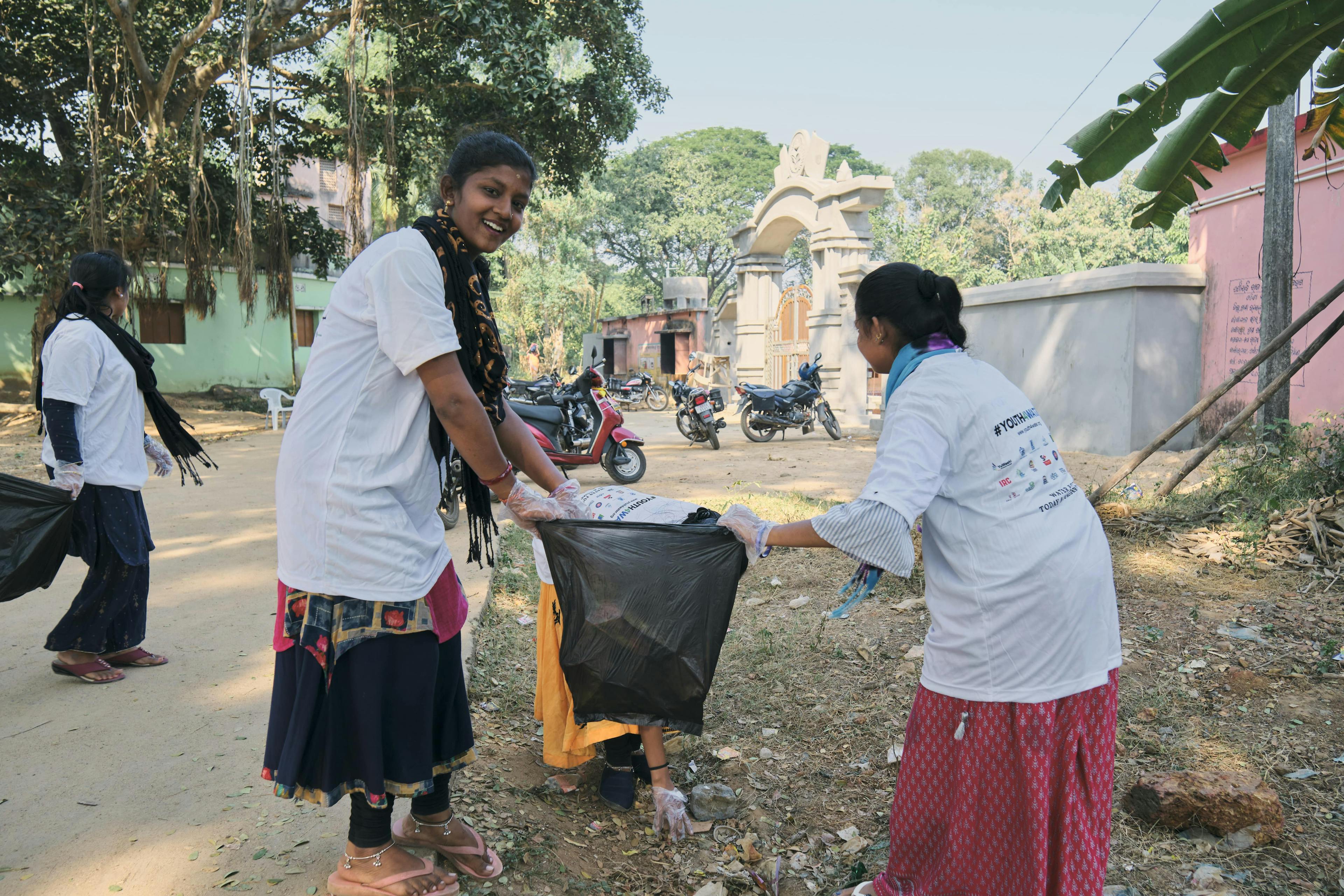
UN0756176
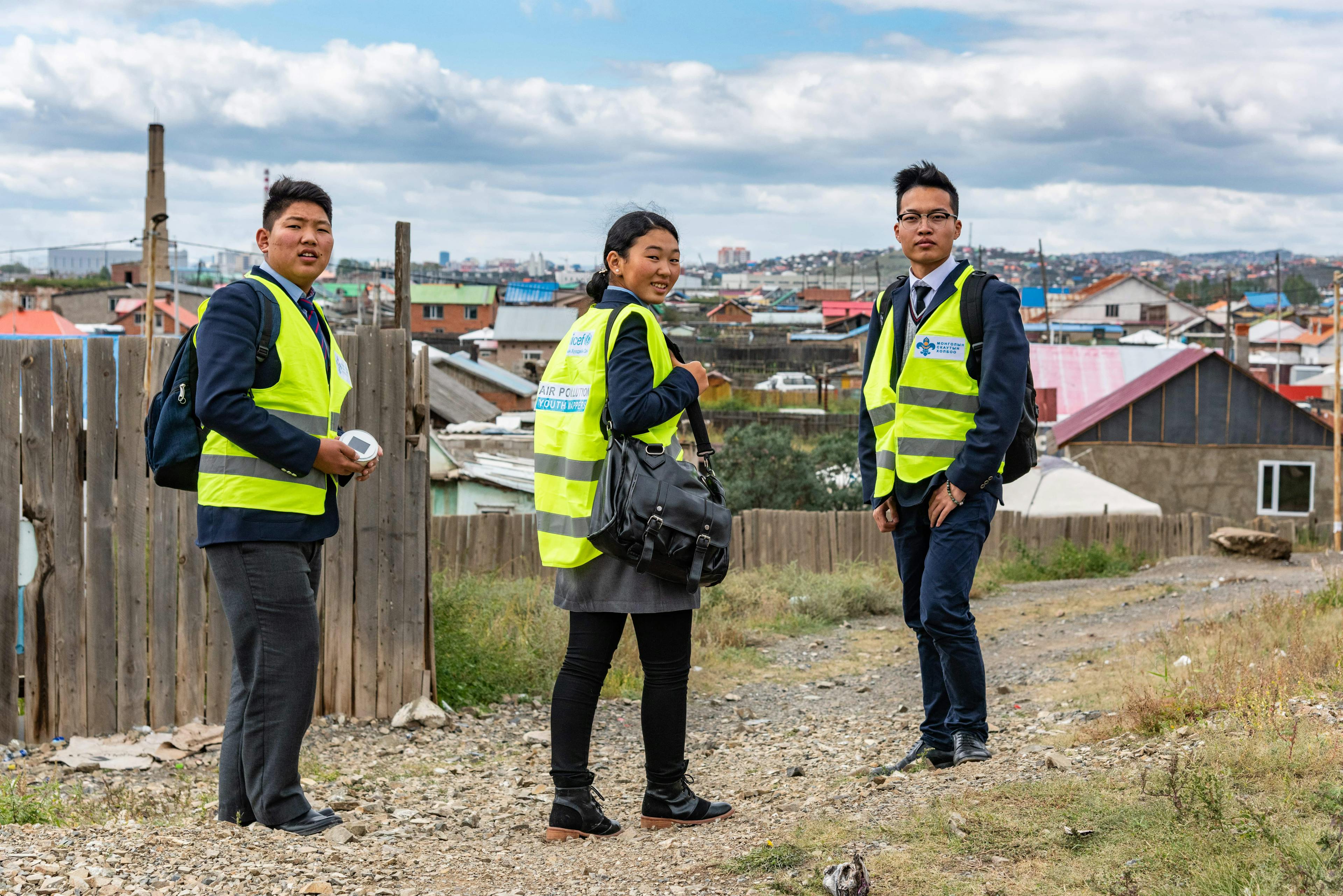
UN0253465
Taking it to the top
Air pollution is the leading environmental cause of illness and early death, and is one of the biggest threats to Mongolia’s future generations. That’s why we're placing young people at the centre of climate change by creating platforms and opportunities for them to influence their communities, connect with other youth, and start a dialogue with the decision makers.
These young activists are mapping the pollution in their community with air quality monitors provided by UNICEF. Their work contributed to reaching over one million people with evidence-based messaging on air pollution and its impact on children’s health & development, and called for immediate action!
The climate crisis isn't just a child rights crisis,
it's an era that we're living – and we all have a part to play!
Read Health updates from
around the globe!
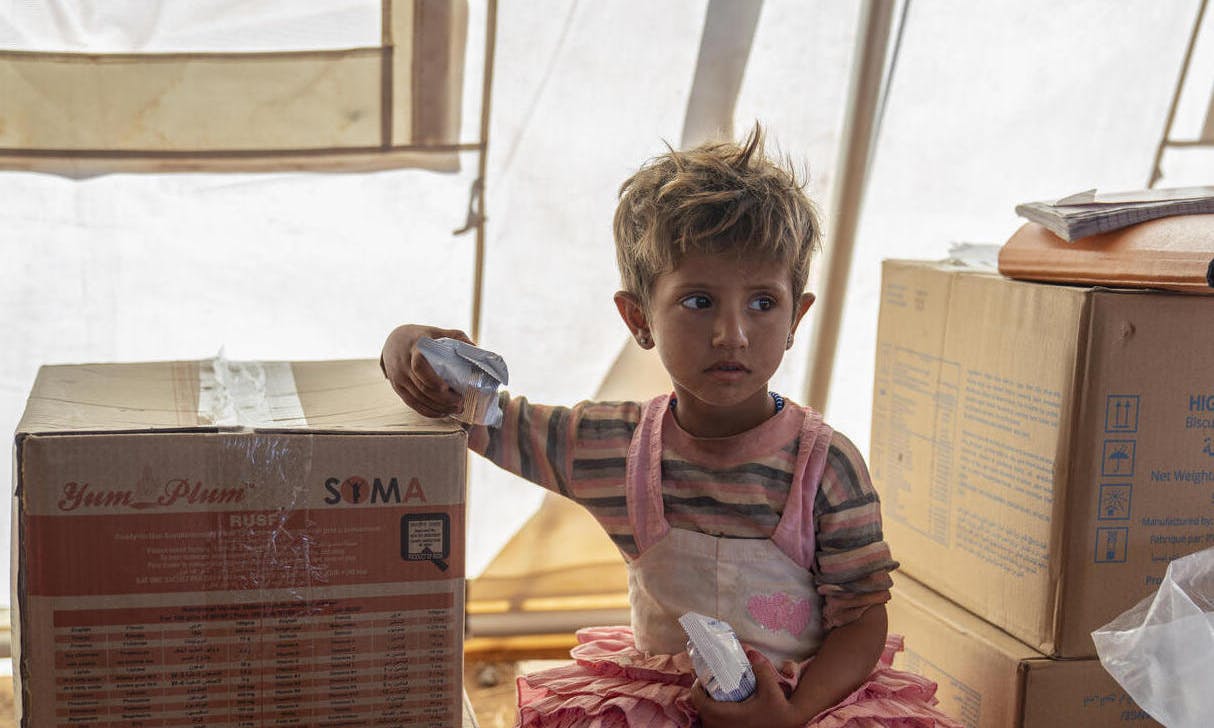
Growing up in conflict
12 years of war in Syria has scarred a generation of children. UNICEF and partners have provided lifesaving healthcare, mental health support and safe spaces to continue education and humanitarian assistance.
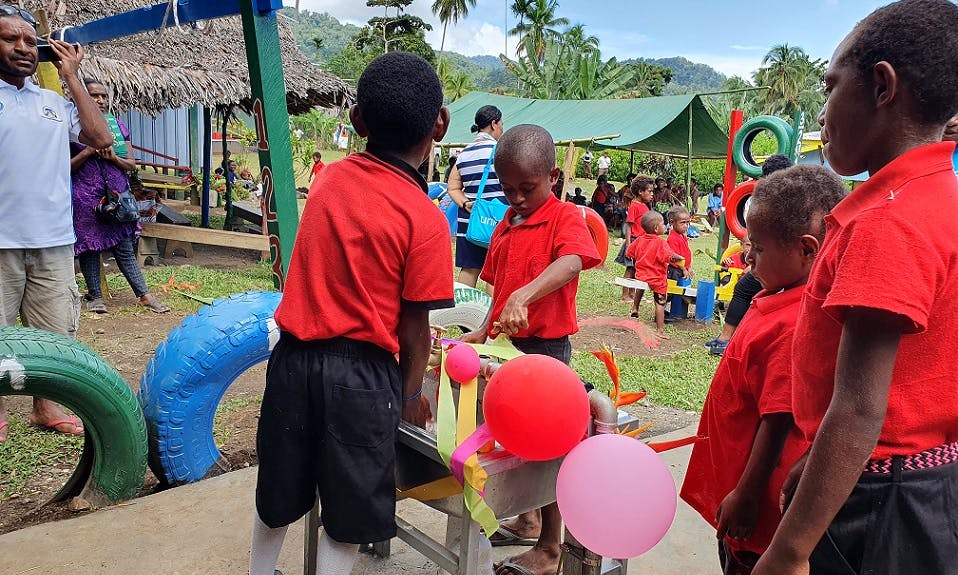
When UNICEF and governments come together
UNICEF Aotearoa’s 5 year Negotiated Partnership with the Ministry of Foreign Affairs and Trade (MFAT) will make a difference to the lives of children in 5 countries within the Pacific, including Papua New Guinea.
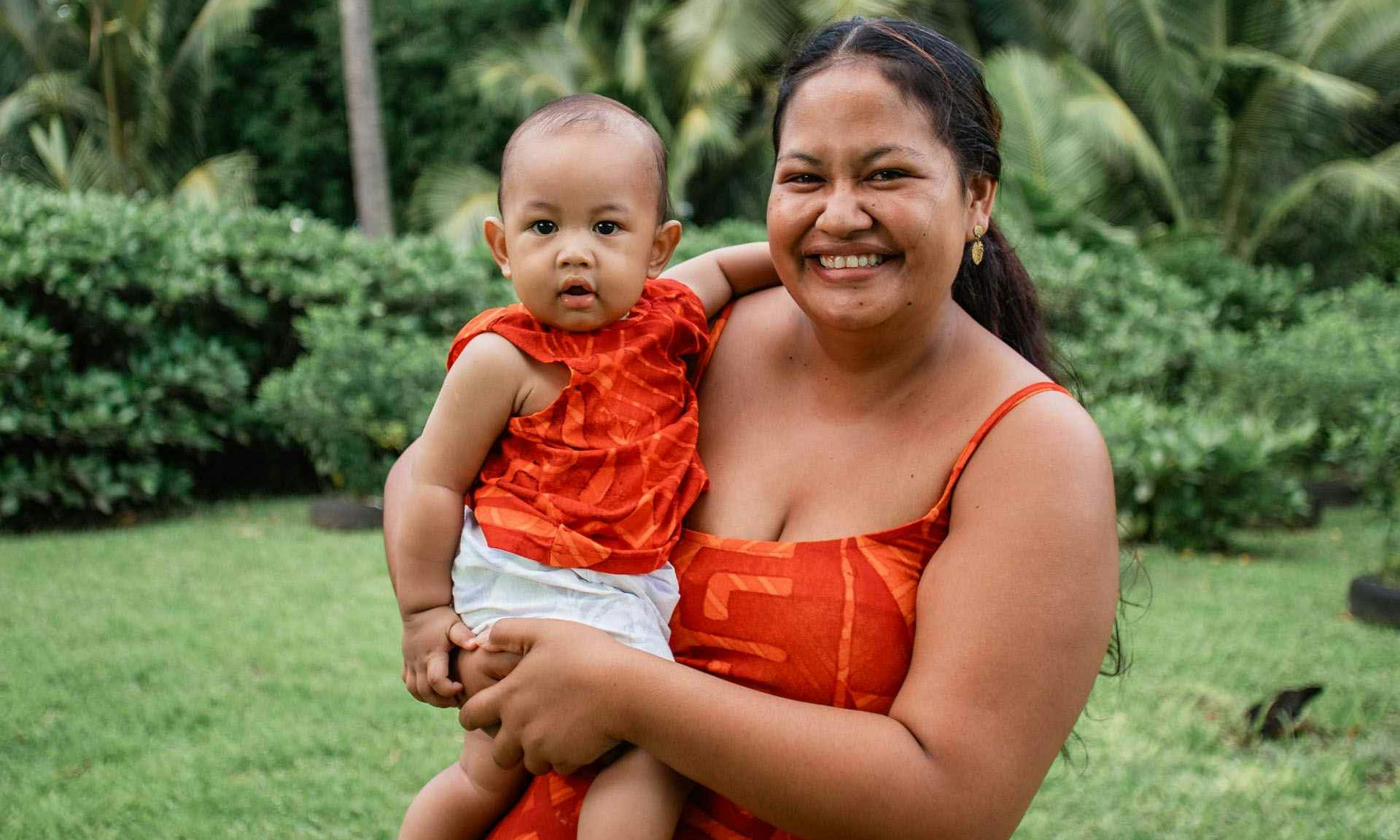
Life-saving vaccines for the Pacific
UNICEF has partnered with Rotary on the ‘Give Every Child a Future’ programme. This means 300,000 vaccine doses will be delivered to children on more than 330 islands over the next three years!
